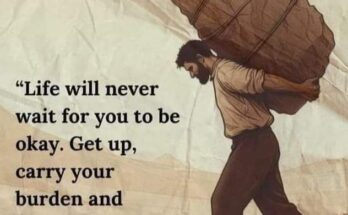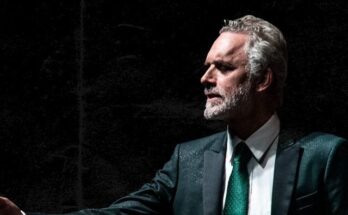“Imagine who you could be, and then aim single-mindedly at that.” — Jordan B. Peterson
In his lectures, books, and interviews, Jordan Peterson frequently invites his listeners into the realm of thought experiments. These are not abstract hypotheticals meant to titillate academic minds, but vivid mental exercises designed to awaken the soul, challenge the conscience, and spark voluntary transformation. For Peterson, a small thought experiment is never truly small. It is a microcosm of life itself—a way of testing truths, confronting fears, and clarifying values before acting them out in the world.
In this essay, we will explore the central role of thought experiments in Peterson’s psychological and philosophical framework. We’ll look at how he uses them to dismantle ideology, amplify personal responsibility, and unearth meaning in the midst of suffering. Above all, we’ll explore how the act of imagining properly—with honesty, humility, and precision—is one of the most courageous and transformative acts an individual can undertake.
The Power of the Voluntary Mind
Jordan Peterson has spent decades emphasizing the immense but often untapped power of attention and voluntary focus. As a clinical psychologist, he observed that what people pay attention to—what they voluntarily think about, even for a few minutes—can radically shape their mood, outlook, and behavior. A small thought, honestly considered, can become a doorway to an entirely new life.
This is why Peterson is not interested in fantasy for its own sake. When he says, “Imagine who you could be,” he’s not encouraging idle daydreaming. He’s challenging individuals to envision themselves better, stronger, more capable—but also to confront the real cost of that better self. This thought experiment, though small in appearance, is existential in consequence.
Imagine, he says, that you stopped lying.
Imagine that you took responsibility for your life, even for things that weren’t your fault.
Imagine that you cleaned up your room, then your house, then your career, then your soul.
What would that look like? What would that demand?
Such imaginings are not soothing—they are demanding. They require brutal honesty, not only about your potential, but about what’s holding you back: fear, resentment, pride, laziness, trauma. To engage in such a thought experiment is to begin the act of transformation.
A Small Thought: What If You Told the Truth?
One of Peterson’s core moral claims is that truth is the bedrock of meaning, and that lying—even in small, habitual ways—corrupts the soul and distorts reality. He often invites his audience to try this experiment:
“What would happen if you just stopped lying for one week? Just one week. No deception. No exaggeration. No saying things you don’t believe to avoid conflict. What would that do to your relationships, your job, your self-respect?”
At first glance, this sounds simple. But try it—and you’ll see that it’s remarkably difficult. Many people lie to keep peace, gain approval, or maintain social masks. Stripping those away forces confrontation: with others and with oneself.
Peterson’s claim is not that the truth is easy, but that without it, everything collapses. A society, a relationship, even a self built on lies is unstable. And so, through a small mental exercise—“What if I told the truth for a week?”—we find ourselves confronting profound philosophical and spiritual dilemmas.
Truth is not just a proposition—it is a way of being. And the thought experiment reveals whether we are truly willing to live in accordance with it.
The Future You: A Mirror and a Warning
Another classic Peterson thought experiment goes like this:
“Imagine who you will be in five years if you continue doing exactly what you’re doing right now. Let that image fully form. Now imagine who you could be in five years if you improved just a little every day.”
This exercise is not about narcissistic fantasy. It’s about vision and responsibility. Most people drift. They do not aim. They act as if life is something that happens to them, not something they are shaping. But this experiment reveals the falsehood of that belief.
Peterson believes the future is not a fixed destination—it is an emergent consequence of your current behaviors and beliefs. By imagining two contrasting futures—one where you continue as you are, and one where you discipline yourself and aim higher—you begin to see the stakes. You understand that your actions matter. You are not static. You are in motion—and you’re choosing the direction whether you admit it or not.
The “you” in five years is you, not a stranger. And this thought experiment creates a sense of moral urgency. Who do you want to become? What will you regret not doing?
The future, in Peterson’s moral universe, is watching—and waiting.
Chaos and Order: Imagining the Edge
Peterson often speaks of the dynamic tension between chaos and order—the twin forces that structure all human experience. Order is where you know what to do. Chaos is where everything falls apart. Life happens on the edge of both.
Here’s the thought experiment:
“Imagine you stepped slightly outside your comfort zone. Not recklessly into chaos—but just far enough into the unknown that it made you stronger. What would that look like?”
This is the psychological zone of transformation—the zone of proximal development. It’s where learning occurs. When you’re too deep in order, you stagnate. Too deep in chaos, you collapse. But on the edge, you grow.
This small thought experiment challenges people to reframe their fears. Instead of seeing the unknown as the enemy, they can see it as the place of potential. Imagine speaking up in a meeting. Asking for a raise. Going to therapy. Ending a toxic relationship. Starting a project that matters.
It’s scary—but it’s also the only place where growth happens. Peterson’s thought experiment reframes that fear as a signpost, not a barrier.
The Worst-Case Scenario: Facing the Abyss Voluntarily
Peterson does not shy away from the darkness. He often advises clients and listeners to imagine the worst—not as a morbid exercise, but as a form of psychological preparedness and spiritual fortification.
“Imagine the worst thing that could happen. Now imagine who you would have to become to face it.”
This is a terrifying and holy question. Imagine the death of someone you love. Imagine betrayal. Poverty. Illness. The collapse of everything you know. Now ask yourself: What kind of person could endure that and still remain good? Still speak truth? Still protect others?
In this dark thought experiment, Peterson is channeling ancient Stoic and Christian wisdom. Life is suffering. Life ends. What matters is not avoiding the fall, but learning to fall with integrity.
Through imagination, you can rehearse your response—not to avoid grief, but to fortify your soul in advance. This is not about pessimism. It is about becoming worthy of tragedy. And in Peterson’s moral vision, that is perhaps the highest human aspiration.
The Problem of Evil: What If You Were the Tyrant?
One of Peterson’s most disturbing—but illuminating—thought experiments involves imagining yourself not as the victim of evil, but as its perpetrator.
“What if you had been a guard at Auschwitz? Or a Stalinist bureaucrat? Or a member of the Inquisition? Don’t assume you would have resisted. Assume you would have complied. Then ask yourself: why?”
This small exercise explodes the myth of personal moral superiority. Peterson draws heavily on the work of Aleksandr Solzhenitsyn, who wrote that the line between good and evil runs not between groups, but through every human heart.
Peterson’s point is not to shame—it is to awaken responsibility. If you can imagine yourself as capable of evil, you are more likely to act against it. You will take moral development seriously. You will stop underestimating how small, cowardly actions can enable large-scale atrocity.
This thought experiment is a gateway to humility—and to the real foundation of morality: voluntary self-restraint and truthful reflection.
The Redemption Narrative: What If Meaning Is Found in Responsibility?
Perhaps Peterson’s most hopeful thought experiment is this:
“What if the meaning of life is to be found not in happiness, but in responsibility? What if you acted as if that were true?”
This flips modern assumptions on their head. The culture says, “Follow your passion.” Peterson counters: “Pick up your burden voluntarily. Then you’ll know who you are.”
This experiment doesn’t demand immediate answers. It invites slow transformation. What happens if you treat your job, your family, your friendships, not as burdens to endure, but as sacred responsibilities? What if you spoke as though your words mattered? What if you aimed your life toward service instead of success?

